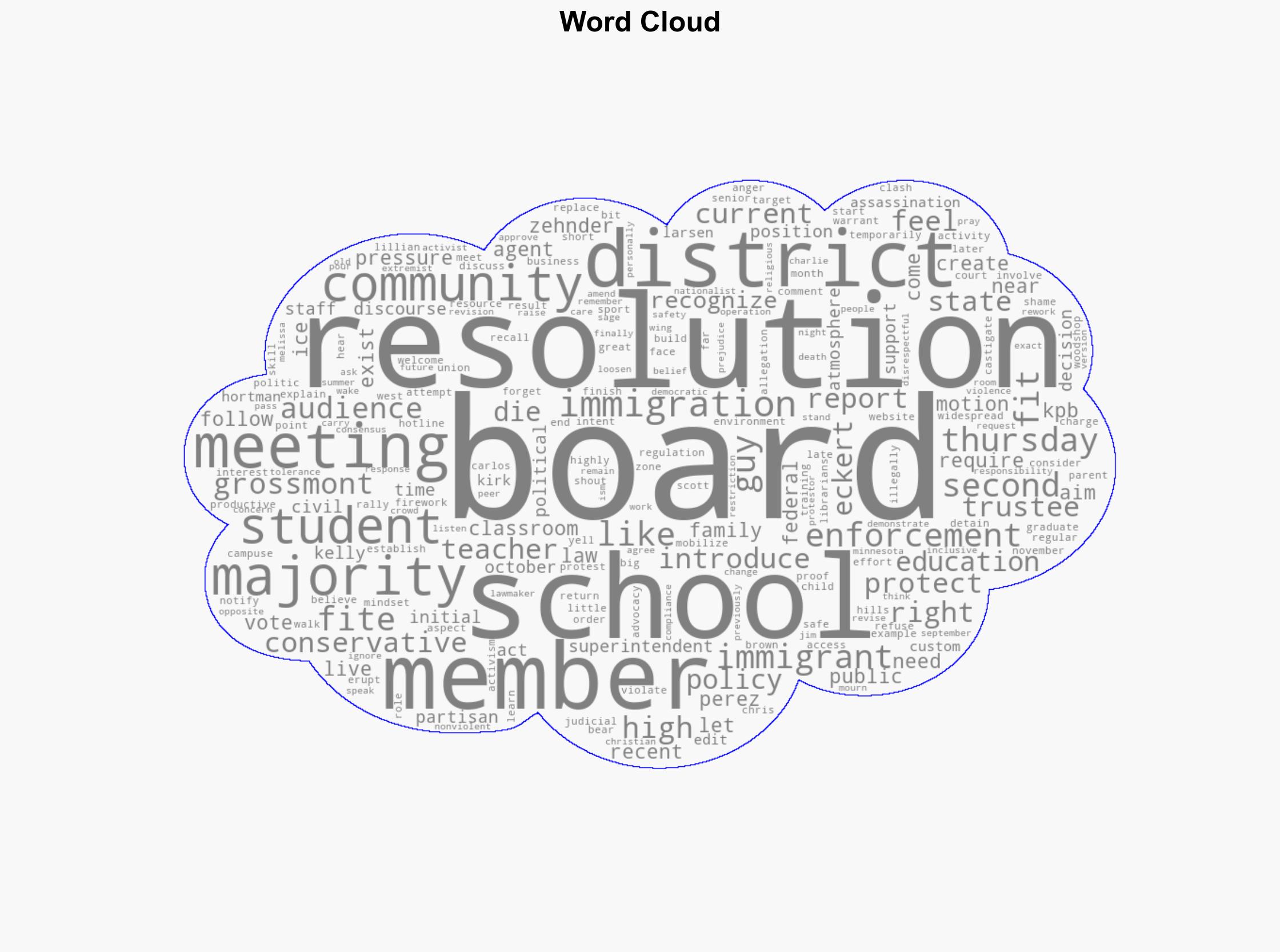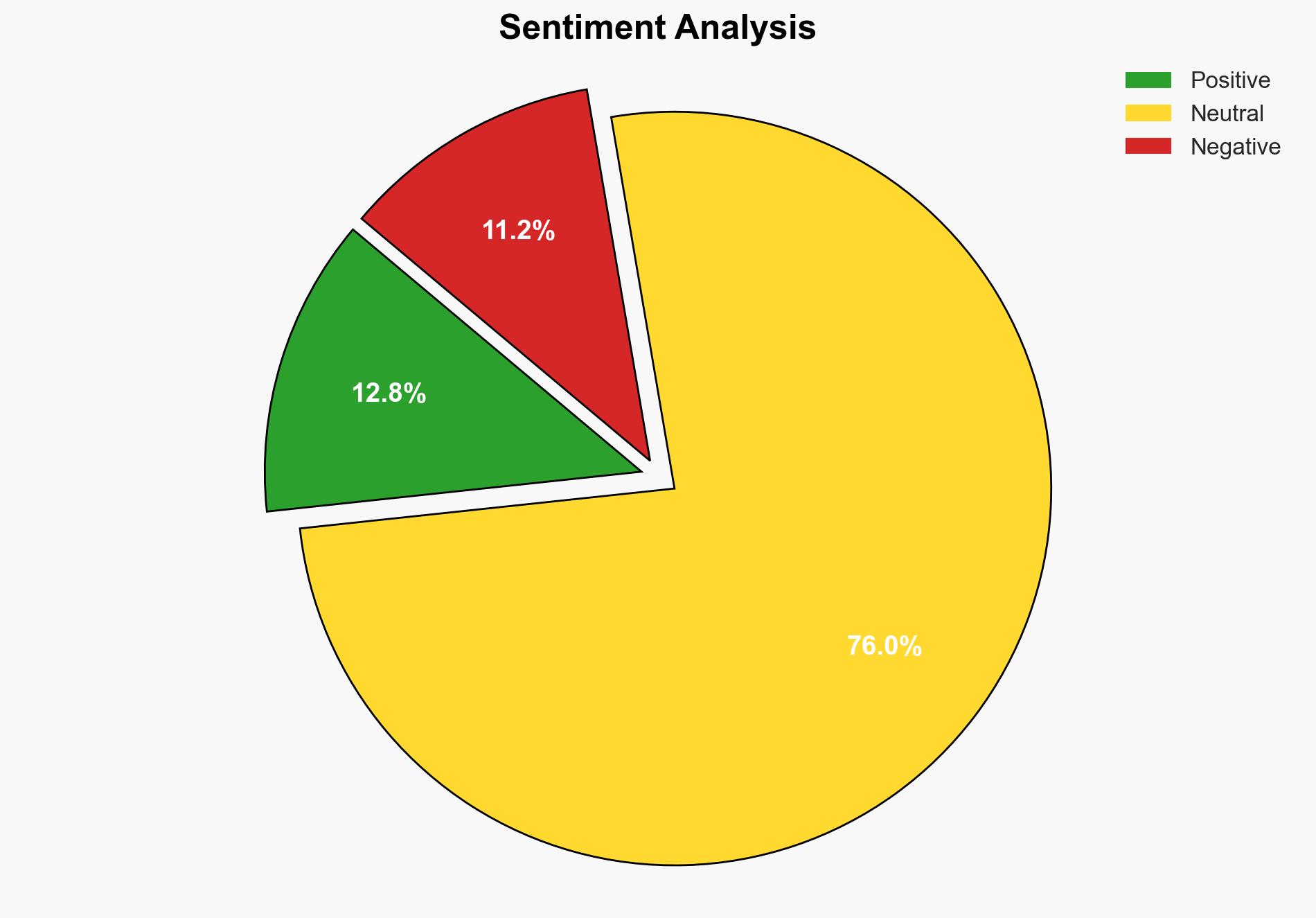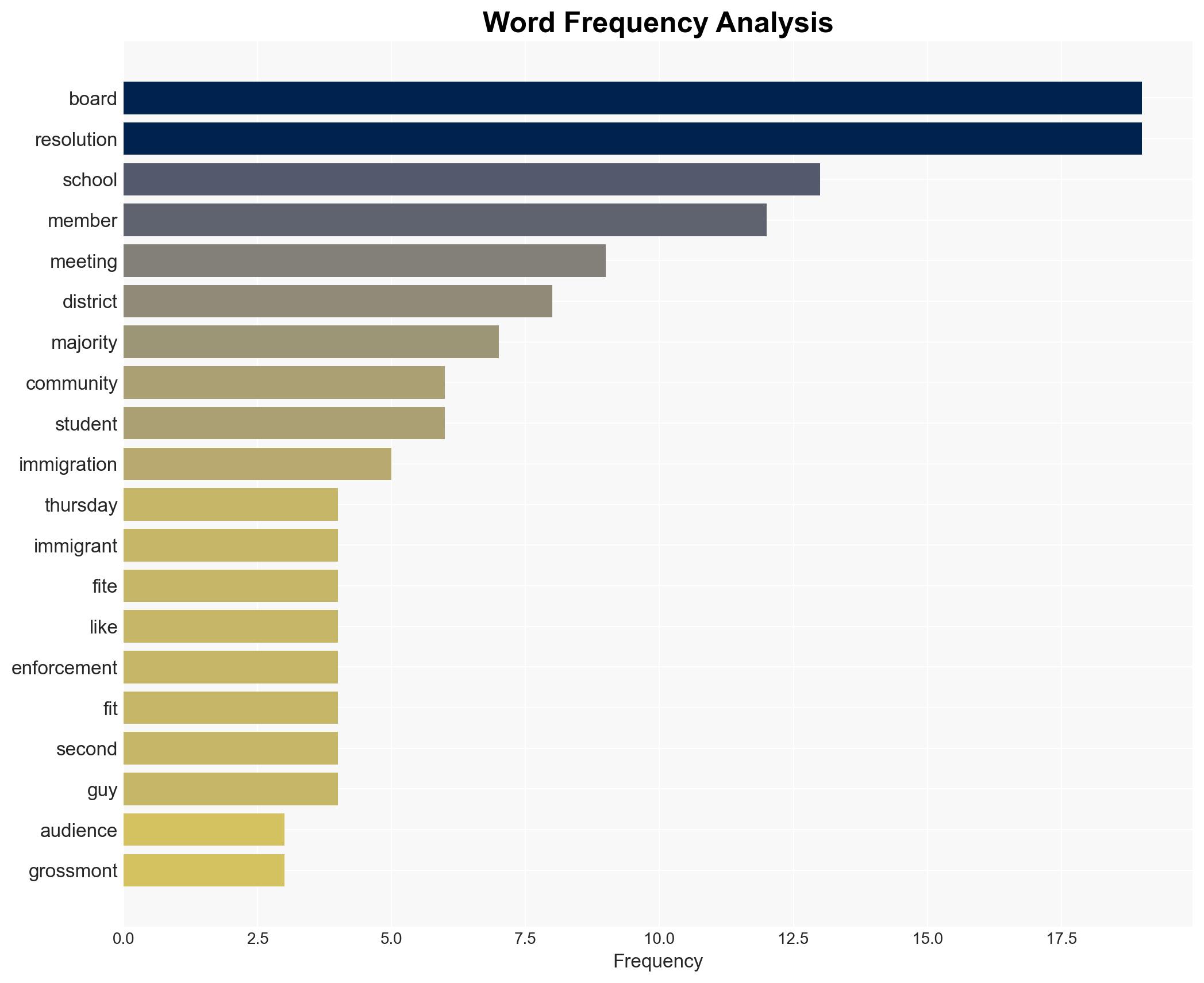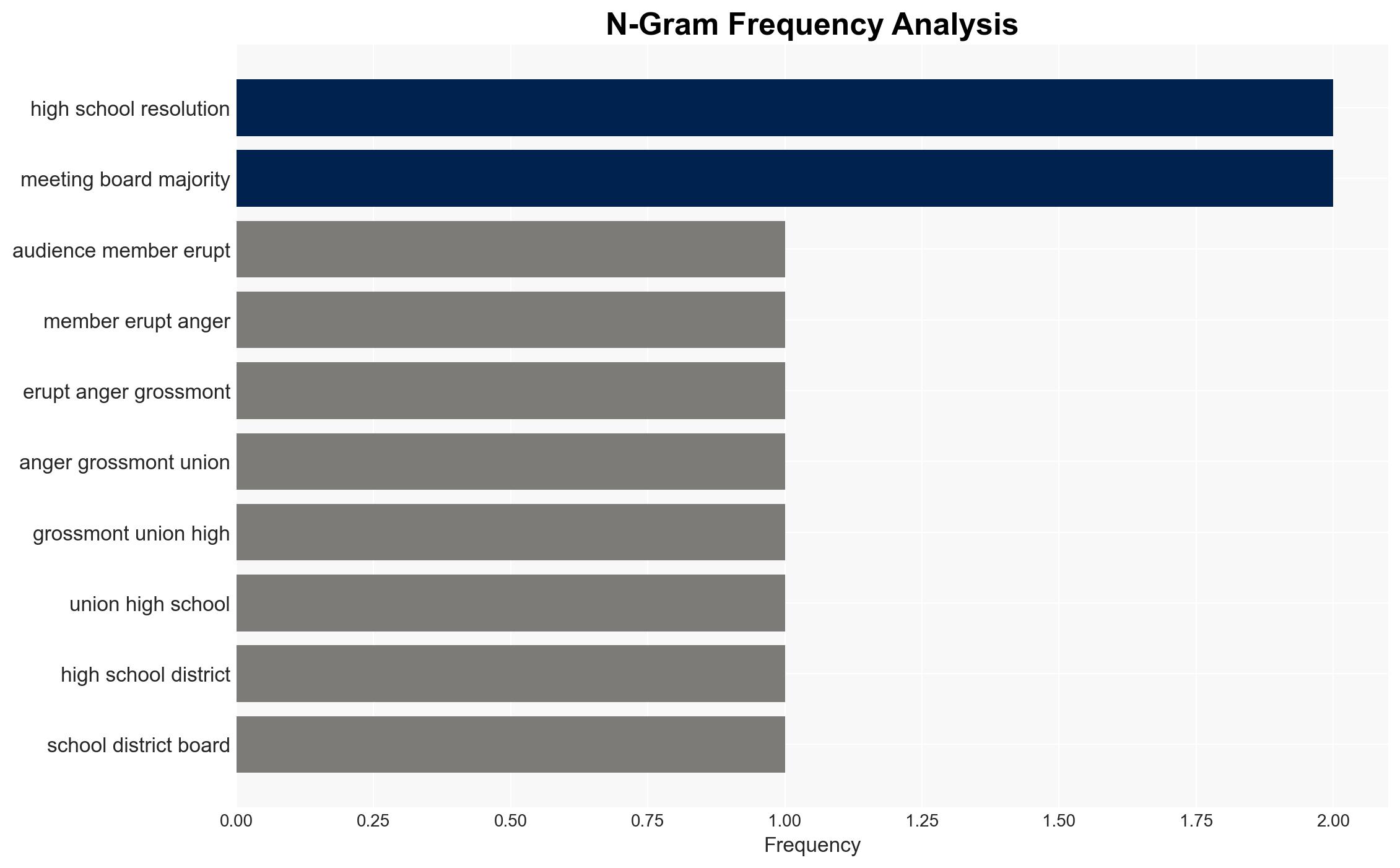Grossmont Union High School District board majority blocks resolution addressing immigration enforcement – KPBS
Published on: 2025-11-15
AI-powered OSINT brief from verified open sources. Automated NLP signal extraction with human verification. See our Methodology and Why WorldWideWatchers.
Intelligence Report: Grossmont Union High School District board majority blocks resolution addressing immigration enforcement – KPBS
1. BLUF (Bottom Line Up Front)
The Grossmont Union High School District board’s decision to block a resolution aimed at protecting immigrant students reflects a broader ideological divide within the district. The most supported hypothesis is that the board’s conservative majority prioritizes maintaining a non-political stance over addressing specific community concerns related to immigration enforcement. Confidence Level: Moderate. Recommended action includes engaging stakeholders to foster dialogue and understanding of the implications of immigration enforcement on student welfare.
2. Competing Hypotheses
Hypothesis 1: The board’s conservative majority blocked the resolution to avoid politicizing the district’s role and maintain focus on education and safety without engaging in federal immigration policy debates.
Hypothesis 2: The board’s decision reflects an ideological stance that aligns with broader conservative views on immigration, potentially disregarding the immediate concerns of immigrant families within the district.
Hypothesis 1 is more likely due to the board’s expressed intent to focus on education and safety, as well as the rejection of political advocacy roles, despite community pressure.
3. Key Assumptions and Red Flags
Assumptions: The board’s decision is based on a genuine desire to avoid political entanglement rather than a dismissal of immigrant concerns. The community’s reaction is assumed to be representative of broader district sentiment.
Red Flags: Potential bias in the board’s decision-making process due to ideological alignment. The risk of community backlash and increased polarization if immigrant concerns are not addressed.
4. Implications and Strategic Risks
The board’s decision may exacerbate community tensions and lead to increased political activism, including recall efforts against board members. There is a risk of reputational damage to the district if perceived as dismissive of immigrant student welfare. Escalation scenarios include intensified community protests and potential legal challenges if state laws regarding immigration enforcement in schools are perceived to be violated.
5. Recommendations and Outlook
- Engage in community dialogue to address concerns and clarify the board’s position on student safety and immigration enforcement.
- Consider forming a task force to explore non-political ways to support immigrant students, ensuring compliance with state laws.
- Best-case scenario: The board successfully navigates community concerns, fostering a more inclusive environment without political entanglement.
- Worst-case scenario: Community backlash leads to significant disruption, including legal challenges and reputational damage.
- Most-likely scenario: Continued tension with periodic community protests and calls for board member accountability.
6. Key Individuals and Entities
Trustee Chris Fite, Trustee Scott Eckert, Trustee Jim Kelly, Superintendent (unnamed), Lillian Zehnder (student), Carlos Perez (community member).
7. Thematic Tags
National Security Threats, Community Relations, Education Policy, Immigration Enforcement
Structured Analytic Techniques Applied
- Cognitive Bias Stress Test: Expose and correct potential biases in assessments through red-teaming and structured challenge.
- Bayesian Scenario Modeling: Use probabilistic forecasting for conflict trajectories or escalation likelihood.
- Network Influence Mapping: Map relationships between state and non-state actors for impact estimation.
Explore more:
National Security Threats Briefs ·
Daily Summary ·
Support us
·





